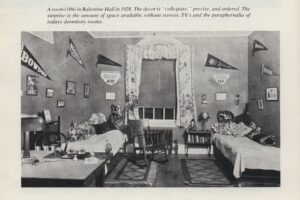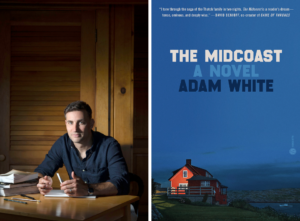Having just come back from studying abroad in Chile, when I saw a book at the library with a road backed by a beautiful mountain scene and a clear sky titled, “Patagonian Road: A Year Alone Through Latin America,” I was automatically intrigued. The title was enough to draw me in and the description on the back sold it to me. It starts, “Spanning four seasons, ten countries, three teaching jobs, and countless buses…” explaining the journey that author, Kate McCahill, shares throughout the book.
McCahill starts her journey long before it actually begins, by reading Paul Theroux’s “The Old Patagonian Express” and wanting to create her own journey, following a similar path to Theroux, but taking time in Latin America. Instead of just riding the train all the way through, McCahill stopped in in several spots to make the most of her experience. She experiences the towns and cities, teaching in a few of them, meeting people and most importantly falling in love with some of these places.
Starting in Guatemala City, Guatemala, McCahill travels through Guatemala, El Salvador, Nicaragua, Ecuador, Peru, Bolivia and Argentina over the course of a year. She only returned to the United States once for a wedding in New Mexico, traveling by bus, from town to town and hostel to hostel.
The one thing that I loved about this book was her honesty. McCahill tells it all. She tells us her personal thoughts, experiences, fears and hopes each step of the journey. About halfway through the book McCahill and her significant other end a serious relationship, greatly affecting the rest of her journey. She seems more free after she gets over this, doing things because she wants to without the concern of having to write or call someone to let them know she is all right.
In her prologue McCahill sums up her journey perfectly by saying, “How little I knew about the world before I left for Latin America. How little I understood about what it meant to be a white American woman in the twenty-first century and how much, in my lifetime, I’ve been spared…How much I underestimated the power of the road, which turned out to be a mostly welcoming, often beautiful place…”
Throughout this journey, McCahill writes how what she experiences differs from what she expected and from the stereotypes of these countries that the rest of the world has. At times, her experiences match perfectly to these descriptions of her expectations.
The book is written in a way that the reader is also able to experience this journey as well. Through the eyes of McCahill we are transported to Christmas Eve in Xela, Guatemala and to an English class in San Roque in Quito, Ecuador. Up until her last stop of Buenos Aires, Argentina, she tells us of the journey she takes. The one thing that bothered me was at times, her descriptions were lacking. It could have been that she didn’t want to write a 1,000-page novel or maybe she didn’t remember much of her time in certain places, but there were times where her stories seemed to be missing something. For the most part they were complete, but there were some places that she seemed to not devote enough pages to, leaving me wondering what else happened there.
In conjunction with this, the book ends very abruptly. She is about to leave Buenos Aires and the book just ends. There is no resolution or discussion of her return to the U.S. She is talking to the man at the laundromat on her second-to-last morning and the book just ends. It leaves the reader wanting more, some type of resolution, but by doing this, it leaves the conclusion of her journey, her flight home and her return to the U.S. all up to the reader’s imagination. I understand why she does it, I just don’t like it.
Another issue I have with the book is that she never actually made it to Patagonia, which is a region in southern Argentina and Chile. The farthest south she goes is Buenos Aires, Argentina. Although she does base her book off of Theroux’s journey, he made it farther south, all the way to Esquel, Argentina, where the actual Old Patagonian Express runs. She never made it that far, making her title slightly misleading.
Reading “Patagonian Road” is a journey. It isn’t a feel-good book, but you will walk away from it feeling like you’ve learned something. It may make you want to see these towns for yourself or it may make you reconsider the places you want to travel. No matter how you feel at the end of the story, it isn’t an easy book to forget.














